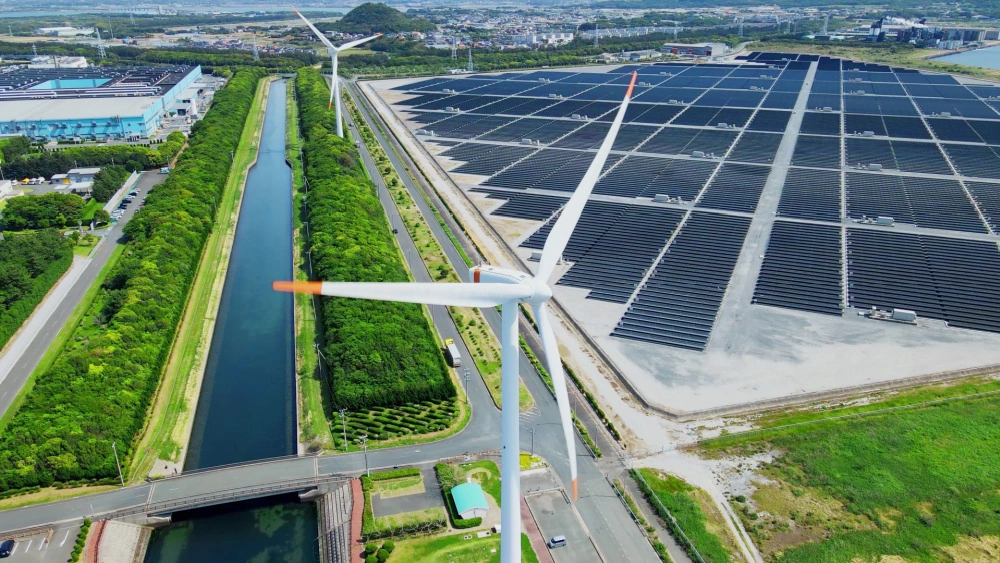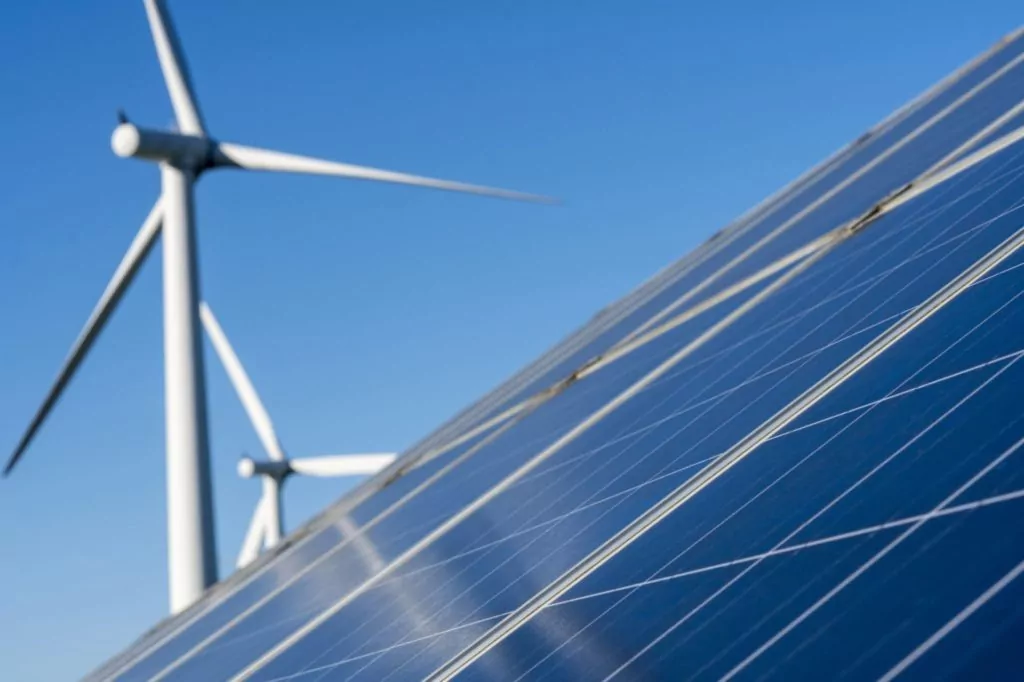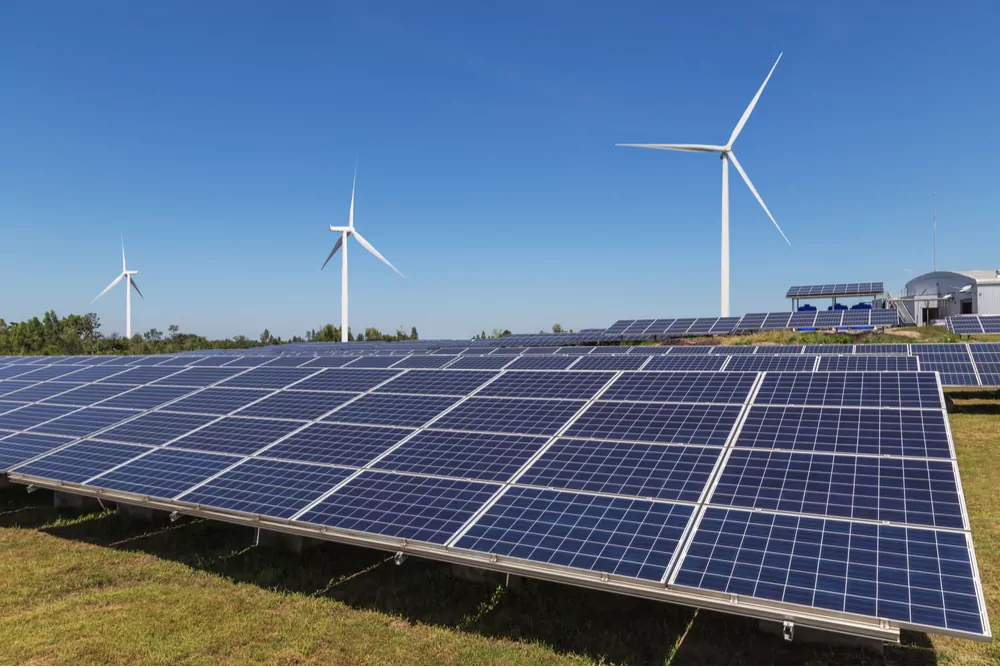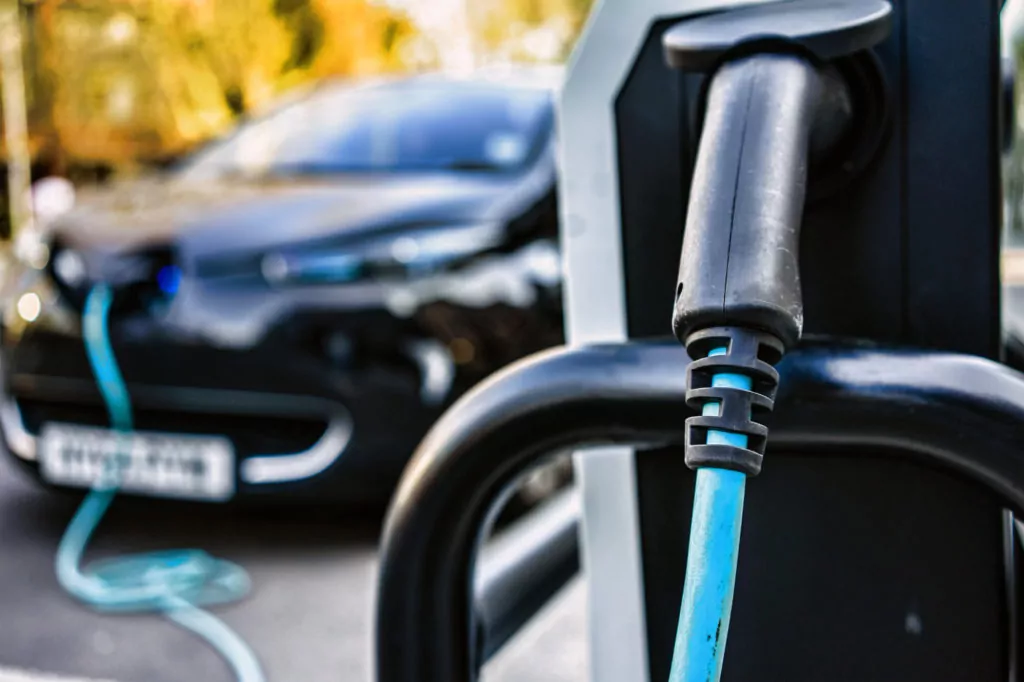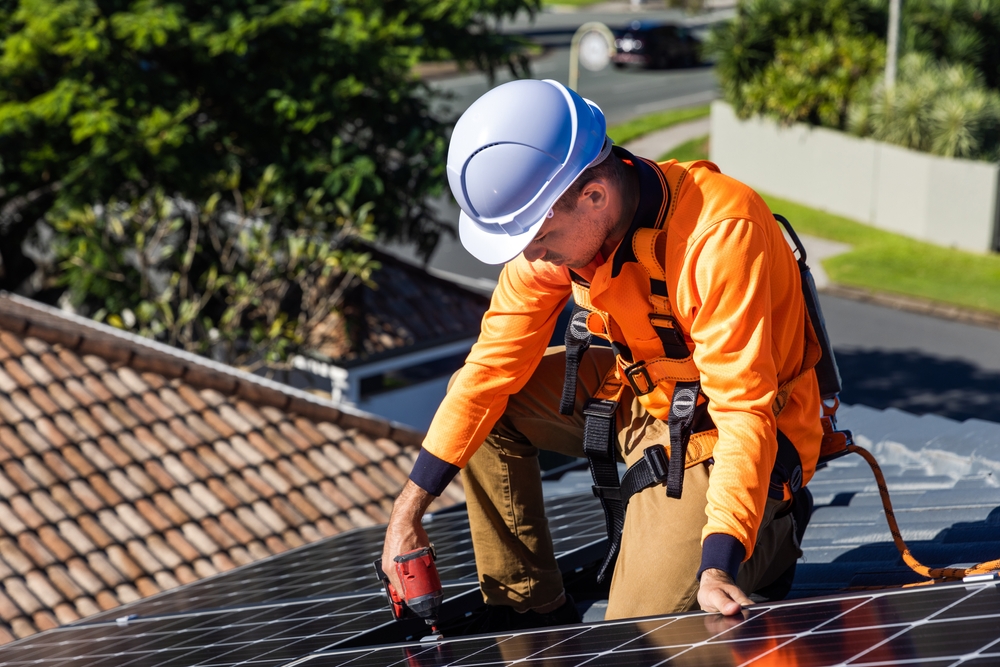
Ofgem Consultation: Heat networks regulation: authorisation and regulatory oversight

By Mark Greatholder, Aliki Zeri, Shauna McGinn
17 Dec 2024 | 5 minute read
Following a slight delay, on account of the general elections, the Government is pressing ahead with plans to regulate the heat networks' sector. On 8 November 2024, Ofgem published a consultation on the regulatory framework for heat networks with the deadline for responses being 31 January 2025. The proposals put forward align with the Government's response to the joint consultation by Ofgem and DESNZ in 2023. They provide additional detail on the phased introduction of the regulatory regime and proposals on how multiple operators of a relevant heat network may be treated under the authorisation regime.
For more information on the 2023 consultation, see our previous article.
The consultation will be of interest to anyone currently involved in either a communal or a district heat network either as an operator of the network, or as the entity responsible for the supply of the heat, cooling, or hot water through the network. Each of these categories of entity is referred to as an 'Operator' or a 'Supplier', respectively, in the 2023 consultation, and a description of their activities is contained in the draft "The Heat Networks (Market Framework) (Great Britain) Regulations 2025".
The definitions of 'Operator' and 'Supplier' are geared towards ensuring that where there are multiple entities in a contracting chain, it is the entity that has a significant level of control over the operation of the network or the supply of heat (including cooling or hot water) through the network that bears regulatory responsibility. In some instances, such an entity could be the landlord of rented accommodation, where the supply of heat is included as part of the service charge or rent (such that it forms part of the services provided under the tenancy agreement).
Whilst the proposed secondary legislation is yet to be finalised, the Government is intent on streamlining the authorisation process, including through the identification of a single point of contact/responsibility ("Single Authorisation Approach"). Being able to identify at the outset of each project the roles and responsibilities of each entity involved (owner of network, intermediary, off-taker) will be key in understanding the degree of additional responsibility, regulatory risk, and administrative cost.
This consultation should be read alongside the final joint consultation between OFGEM and DESNZ on proposed consumer protections. A summary of the key measures proposed can be found here.
Summary of the scope of the proposed regulations
To see a full summary of the scope of the proposed regulations, please click here.
Key responsibilities for operators and suppliers
Operators:
- Ensuring a reliable supply of heat and procurement of fuel/ thermal energy source.
- Putting arrangements in place with another entity for the continued operation of the heat network in case of failure or revocation of authorisation.
- Other responsibilities relating to compliance measures, decarbonisation, notifying Ofgem of any material changes and acting as a contractual step-in entity for the Supplier.
Suppliers:
- Having a contractual relationship with consumers, in the form of a heat supply contract or deemed contract (which could include a tenancy agreement, where heat is supplied under the same).
- Putting arrangements in place with the Operator for continued supply in the case of failure or revocation of authorisation.
- Other responsibilities relating to billing/pricing, customer service, complaints and supporting vulnerable customers.
Note: The consultation on proposed consumer protections sets out the minimum terms that need to be included in a heat supply contract (or deemed contract) in Annex 1.
Single Authorisation Approach
Ofgem expects that, in most cases, the same person or entity will carry out the activities of both the operation and supply on a heat network. In addition, the expectation is that a single entity will assume the role of the Operator in a heat network.
However, it is possible in certain district heat network schemes to identify multiple parties as an Operator of the network. Each Operator will need to be authorised separately (or will be deemed to be authorised). Whether such authorisation remains in place for the 'life' of the heat network depends on Ofgem's preferred option (3 are outlined in the consultation):
Proposals
Operators must agree on a single entity to act as the regulated party by a specified date.
The selected operator registers with Ofgem, and the authorisations of other parties cease to apply.
- Operators may struggle to agree on who will take on the role.
- The chosen operator assumes all regulatory responsibility, potentially creating disputes over risk and accountability.
- The remaining Operators have reduced visibility and may disengage.
Operators must use “best endeavours” to identify a single Operator by a specified date.
- If they agree, the selected Operator takes over, and the other Operators’ authorisations are voided.
- If no agreement is reached, multiple Operators remain authorised, provided they can prove the use of “best endeavours” to Ofgem.
- It would be a matter of interpretation whether “best endeavours” have been used in each case and could lead to potential disputes.
- If an agreement is not reached, multiple Operators will remain authorised, which complicates regulatory compliance.
- Prolonged negotiations may delay compliance.
Operators designate a single point of contact for submitting data and coordinating compliance activities.
All Operators retain their authorisations and are individually responsible for their parts of the network.
- The lack of centralised accountability can make it difficult to ensure compliance across the entire network.
- The nominated contact may face challenges managing inputs from multiple Operators.
Single heat network authorisation per authorised person
To align with the government's commitment to streamlined authorisation, Ofgem will issue a single heat network authorisation covering all relevant heat networks under the responsibility of a particular entity.
Broadly, the consultation proposes that:
- Where operation and supply are undertaken by the same party, both activities will be specified within the schedule of a single authorisation for that authorised person; and
- Where operation and supply are undertaken by different parties, the activity will be specified in a separate authorisation for each authorised person.
Section 2.31 of the consultation explains how more complex arrangements will be dealt with, such as where a district heat network is 'feeding' a communal heat network, both of which are owned and operated by different entities. In this context, identifying the boundaries of each network will be key for Operators and Suppliers, as this will determine which entity is responsible for applying for an authorisation (if it is a New Network) or is deemed to be authorised if it is an Existing Network. Further guidance from Ofgem is anticipated in this respect.
Phased introduction of regime
The draft Heat Networks (Market Framework) (Great Britain) Regulations 2025, which have been laid in Parliament anticipate that all Existing Networks will come under the scope of the new regime on 1 April 2025.
As noted in the previous consultation, transitional arrangements will ensure a smooth transition to a fully regulated sector, with the current consultation detailing the phased approach.
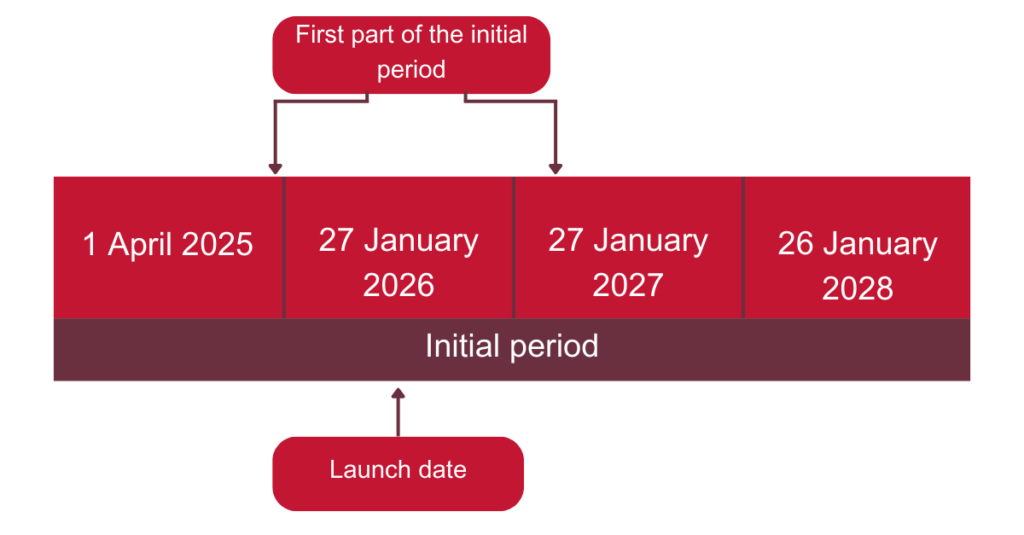
Key dates
Any Existing Networks (those that have been in operation prior to 1 April 2025) will be deemed authorised from the beginning of the Initial Period, meaning that there is no need for the Operators and Suppliers of heat in such networks to apply for formal authorisation.
What to do you need to do?
- Register activity with Ofgem by 26 January 2027;
- Be aware that general authorisation conditions will become effective from 27 January 2026 (“Launch Date”) and Ofgem will have full enforcement powers; and
- Prior to the Launch Date, end customers will be given access to consumer advocacy and redress schemes to address any potential grievances.
Any New Networks that commence operations during this period will also be deemed authorised, meaning that there is no need for the Operators and Suppliers of heat in such networks to apply for formal authorisation.
What do you need to do?
- Register activity with Ofgem by 26 January 2027;
- Be aware that general authorisation conditions will become effective from 27 January 2026 (“Launch Date”) and Ofgem will have full enforcement powers; and
- Prior to the Launch Date, end customers will be given access to consumer advocacy and redress schemes to address any potential grievances.
- Any New Networks that begin after this date will need to apply to Ofgem to obtain authorisation prior to the activities of Operation or Supply being undertaken.
Proposed general authorisation conditions are contained in the consultation on consumer protection measures.
Options for Enforcement
Enforcement will address significant breaches, particularly where there is evidence of consumer detriment or misconduct. Ofgem's enforcement powers are expected to include investigations, orders, penalties, and the potential for redress funds. Fixed penalties are proposed for minor breaches, such as late or inaccurate data submissions. Guidance and support will be provided to help Operators and Suppliers meet regulatory standards and further details are expected to be set out in the forthcoming penalties policy consultation for heat networks.
Concluding Remarks
Whilst the proposals are still under consideration and there is no certainty on the final form that the new regulatory regime will take, there is a consistency in the approach taken by both the former and current Governments. In this respect the consultation proposals do, therefore, show the direction of travel and provide us with a reasonable idea of what is likely to come. As an imminent step, anyone who is involved in either a district heat network or communal heat network is advised to consider the existing arrangements to identify which entity or entities would fall within the definition of Operator or Supplier under the proposed arrangements. Following this, a better understanding of their future responsibilities will help them plan ahead for the future.
Our team would be happy to discuss matters further, so please get in touch.




